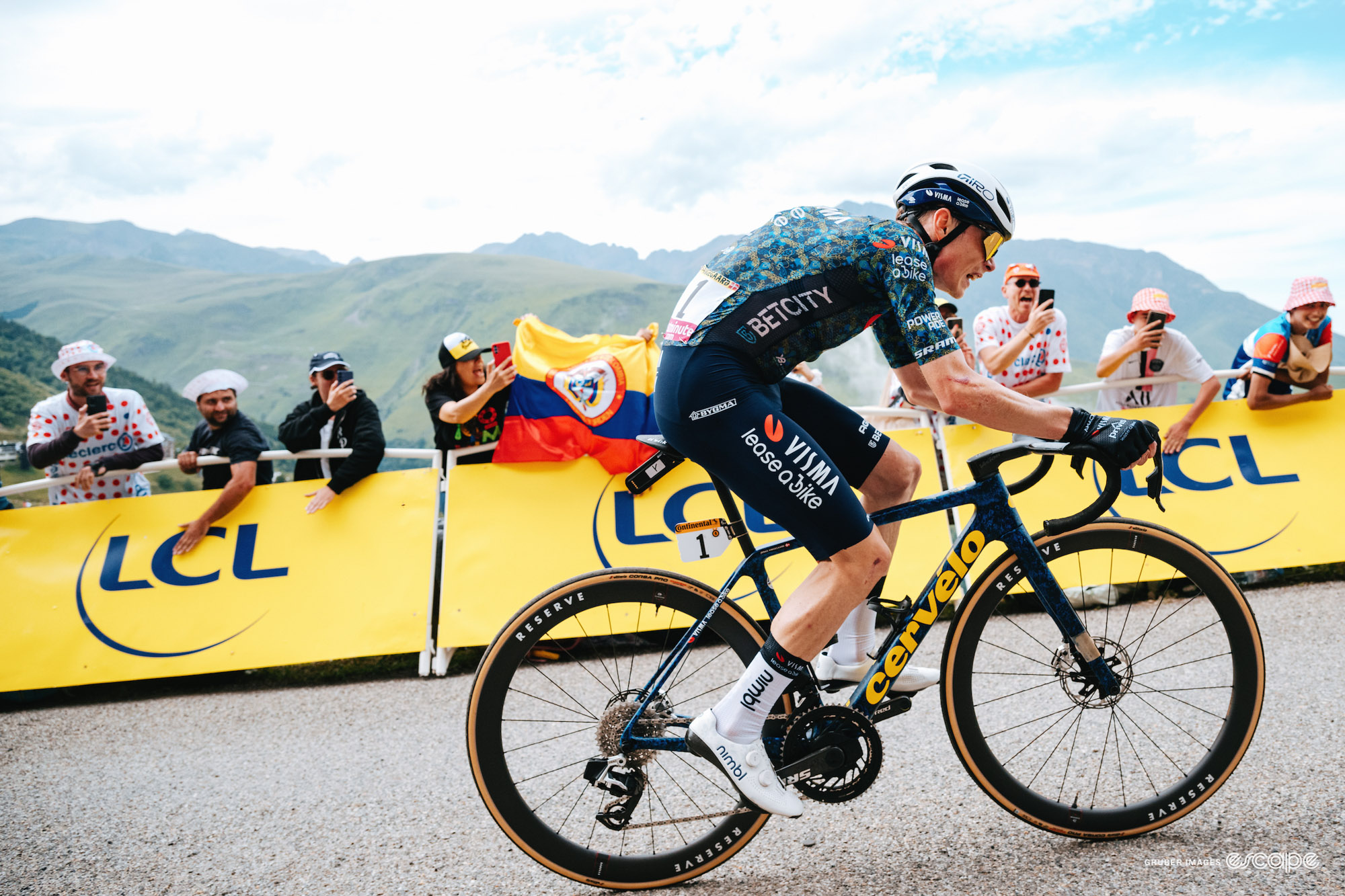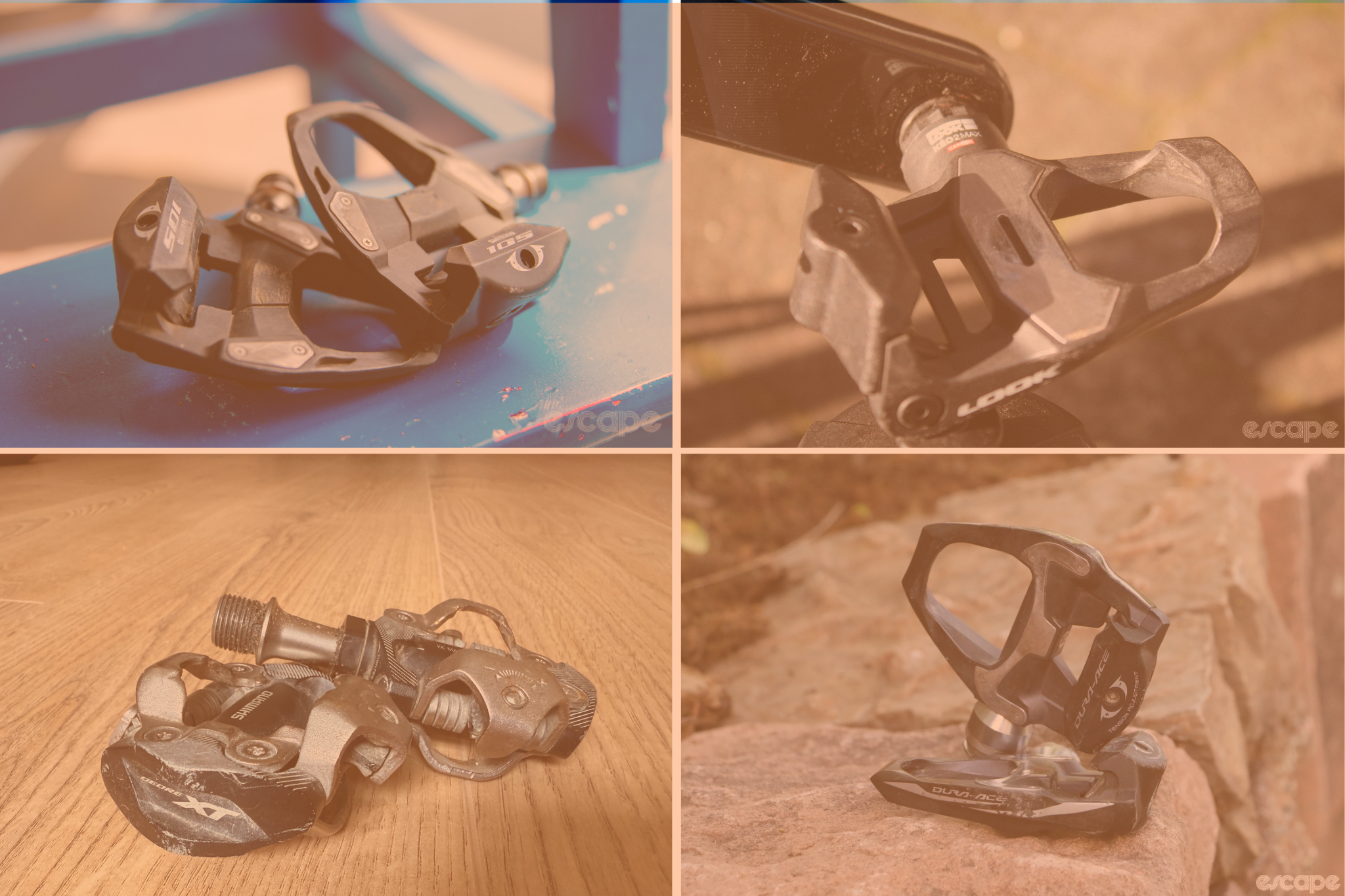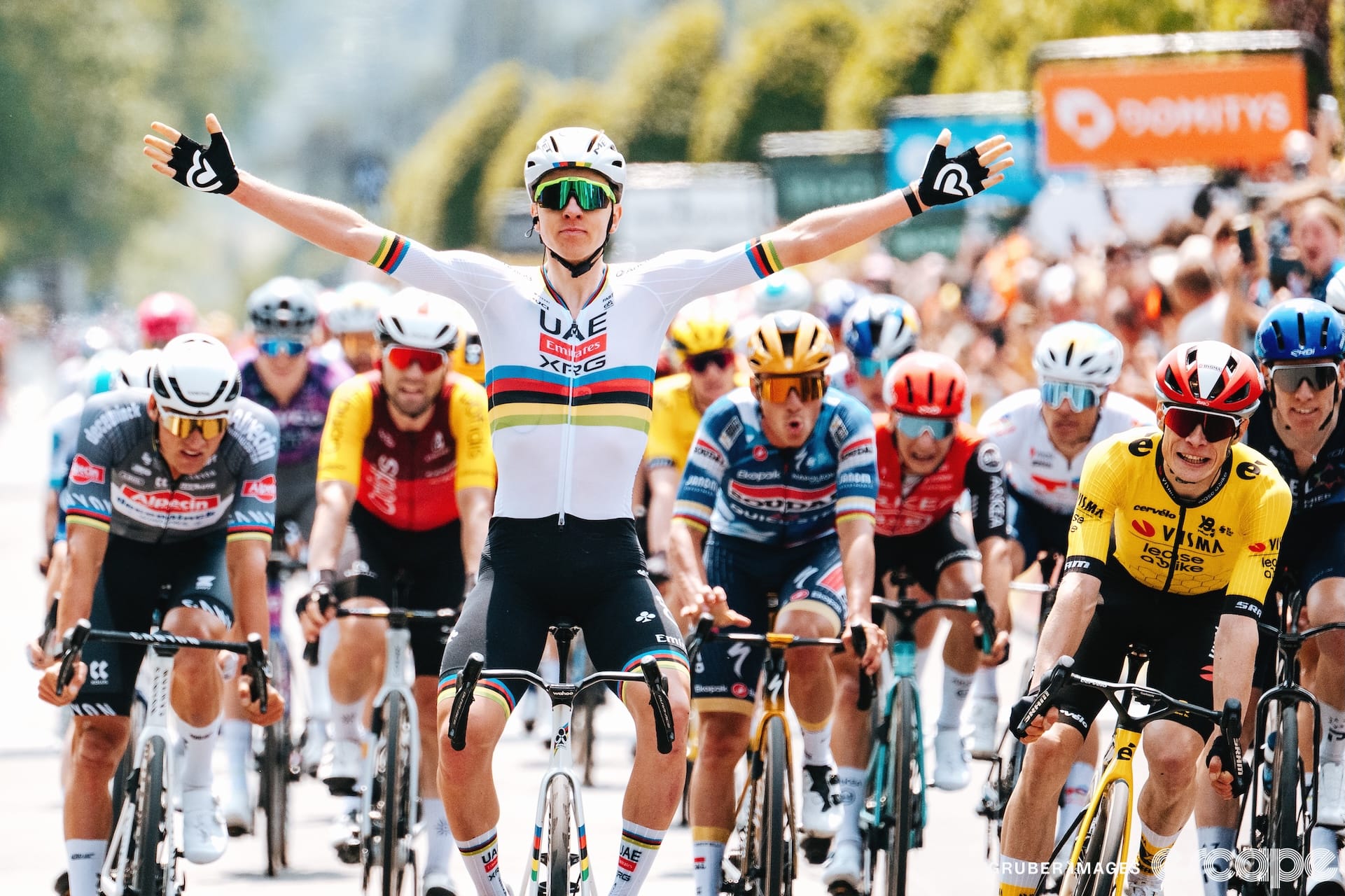It’s not about tactics, it’s about legs. That’s what Tadej Pogačar (UAE Team Emirates) said Friday, a day before he used the slopes of Pla d’Adet to prove his own words were right. And maybe a bit wrong, too.
Stage 14 ended in a 39-second time gain for Pogačar over Visma-Lease a Bike's Jonas Vingegaard, 43 after time bonuses. It was partially the result of clever tactical improvisation and timely use of teammates. Moreso, though, it was one great climber dropping another in a part of the race where even the best teammate would fail to do much at all about it.
Draw up all the plans you want: If the riders can’t execute, if they aren’t there at the key moment with the power to do what they need to do, it will all be for nought. That’s what Visma admitted to on Saturday, speaking in the hushed tones of a team that couldn’t do a thing about what had just happened to them. Grischa Niermann, the team’s head sports director, stood outside the bus and told the press he and his team had “no ability to react” to the one-two punch UAE had put together on the fly. He had no rider up in the breakaway, as UAE had shut down all Visma attempts; he had no Sepp Kuss to call into action. It was man against man and his man didn't have it.
Niermann spoke quietly to Vingegaard, who cooled down facing away from fans and media. Matteo Jorgenson, after his own impressive shift in service of his leader, said a few supportive words. There was a lot of standing around in silence. There was no lifting the mood.
Reactions in both victory and defeat say something about both teams, and both riders. Both are bothered most when their failure occurs in an area of perceived strength. Or, more bluntly, when they fail in a way that they don’t know how to prevent.
What worried Niermann and Vingegaard wasn't UAE's tactics. It was that the tactics were ever given an opportunity to play out.
“Maybe they weren’t expecting it,” Pogačar mused after the stage, referring to his improvised suggestion that Yates head up the road. Visma’s lack of response was exactly what the Slovenian hoped for when he rode up next to his teammate on the lower slopes of Pla d’Adet and yelled instructions over the noise of the crowd. “One moment he told me to attack, and I was like, ‘What are you on about?’” Yates recalled. There was no call from the team car or any sort of control room, just instinct on Pogačar’s part.
Having Yates ahead was a win-win for Pogačar and UAE. If nobody reacted, it would be a potential stage win for Yates, a loyal and incredibly useful domestique. “If Adam is flying then he takes the stage win; if others are cooked then I can try,” Pogačar explained. The latter turned out to be the case, and Yates gave Pogačar a nice little lily pad to hop onto for a bit before continuing on his way. “He basically died there on the road for me so I could gain a little bit of an advantage, take a breather, and go from there on to the finish,” Pogačar said appreciatively.
Pogačar is predictable at this point. In ball sports, they talk about automatisms, plays and tactics that are so drilled into athletes that they perform them without conscious decision-making. Pogačar’s automatism is to test those around him whenever possible, and in particular when they are alone. “When you attack, if somebody reacts or not, that’s how we test the legs of everybody else,” he said. Vingegaard knew the second he lost Jorgenson that the move was coming.
How different from just a few days ago when it was Pogačar who was visibly concerned. He shook himself free from Vingegaard on the way to Le Lioran, only to be clawed back and outsprinted. He stood at the finish unsure what had just happened, and of how to move forward.
For Pogačar, losing a sprint into Le Lioran seemed particularly worrying to him. His backup plan when caution-to-the-wind attacks fail is to take a few bonus seconds anyway, and he couldn’t even do that. He looked a bit vacant during interviews, like he was still trying to sort it out for himself. For Vingegaard in turn, losing in a straight-up climbing contest shook him. This wasn’t a tactical failure just as it wasn’t a tactical victory. It was legs. Even when tactics play a part, it's always down to legs. As we head into this Tour's brutal third week, that will concern him more than anything.
Did we do a good job with this story?




